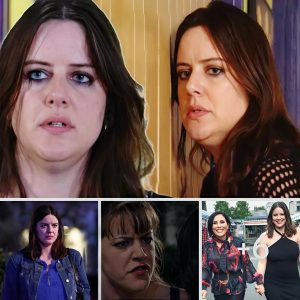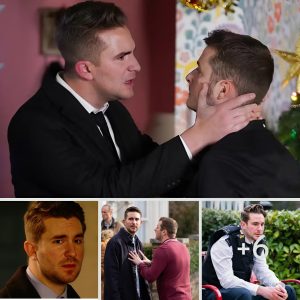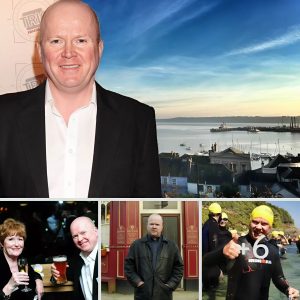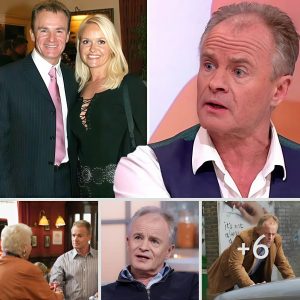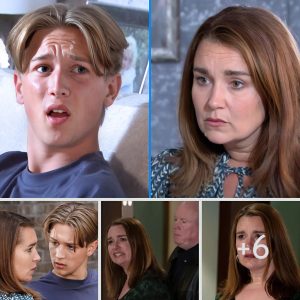At 41, actress Kara Tointon—known to millions as EastEnders’ feisty Dawn Swann and a beloved winner of Strictly Come Dancing—revealed the most personal and courageous chapter of her life. But this isn’t just a story about a celebrity making headlines. It’s about a woman making an unthinkable decision to secure her future—and that of her family.
In an emotional video shared with the Eve Appeal, Kara sat in a simple grey hoodie, speaking softly but with purpose. Her tone was raw and honest as she took viewers through her deeply personal battle with the BRCA1 gene—a genetic mutation that significantly increases the risk of breast and ovarian cancer. This was no medical theory to Kara. It was painfully real.
Back in 2018, while her mother battled ovarian cancer, Kara was offered a genetic screening. There had been whispers of cancer on both sides of her family, but due to what she calls “generational trauma,” no one had pursued testing—until now. The result confirmed what she feared: Kara, like her mum, was a BRCA1 carrier.
At the time, Kara was pregnant with her first child. Motherhood was new and overwhelming, but it also gave her clarity. She wanted to be there for her children—for birthdays, graduations, even ordinary days filled with laughter and love. That clarity became a driving force behind her decision.
Over the following years, she attended countless NHS consultations, met specialists, and learned everything she could. She weighed her options. Monitored her body. Endured the emotional toll of MRIs and waiting for biopsy results. But deep down, she knew: surveillance alone would never ease her fear.
By 2023, Kara had given birth to her second son. Her family was complete. And with that, came the decision that would change her life forever: two preventative surgeries—one, a double mastectomy; the other, the removal of her Fallopian tubes as part of an innovative cancer prevention trial.
It was a drastic step, but not a rash one. Kara understood that most ovarian cancers actually begin in the Fallopian tubes. By removing them first and delaying ovary removal, science was offering women a better chance to live without immediate surgical menopause—a nuance in treatment that gave Kara even more agency in her choice.
In the video, she admits it wasn’t easy. There were moments of doubt, fear, even grief. But never regret. “It wasn’t an easy decision,” she confesses, “but one I am very glad I made.” She praised her surgeons, Dr. Adam Rosenthal and Dr. Gerard Cuie, for guiding her through a journey that was as emotional as it was physical.
What makes Kara’s story even more profound is her choice to go public—not for applause, but for awareness. “Knowledge is power,” she said. “Communication is key.” It was hearing other women’s stories that gave her the strength to go forward. Now, she wants her own experience to do the same for someone else.
As the world applauds her bravery, Kara’s decision places her at the center of a broader conversation—one about women, health, family, and the evolving understanding of personal genetics. In a time when science gives us the power to look into our future, Kara chose to act before the story could be written for her.
Outside of the operating room, Kara remains a figure of inspiration. She rose to fame playing a bubbly young woman in EastEnders, captured hearts on Strictly with her grace and grit, and built a family away from the cameras. But her most powerful role yet may be this one—survivor, advocate, and protector of the next generation.
Even as headlines celebrate her courage, Kara stays grounded. She’s not just telling her story; she’s reshaping what survival looks like. For her, it wasn’t just about removing body parts. It was about reclaiming her narrative, taking control of her health, and giving her children the best chance to grow up with their mother by their side.
The final message of Kara’s journey is clear: being proactive isn’t about fear—it’s about empowerment. And in sharing her truth, Kara Tointon has ensured that someone out there, facing their own impossible decision, will know they’re not alone.
This is not just a medical journey—it’s a human one. A story of loss, love, and legacy. And it’s only just beginning.
